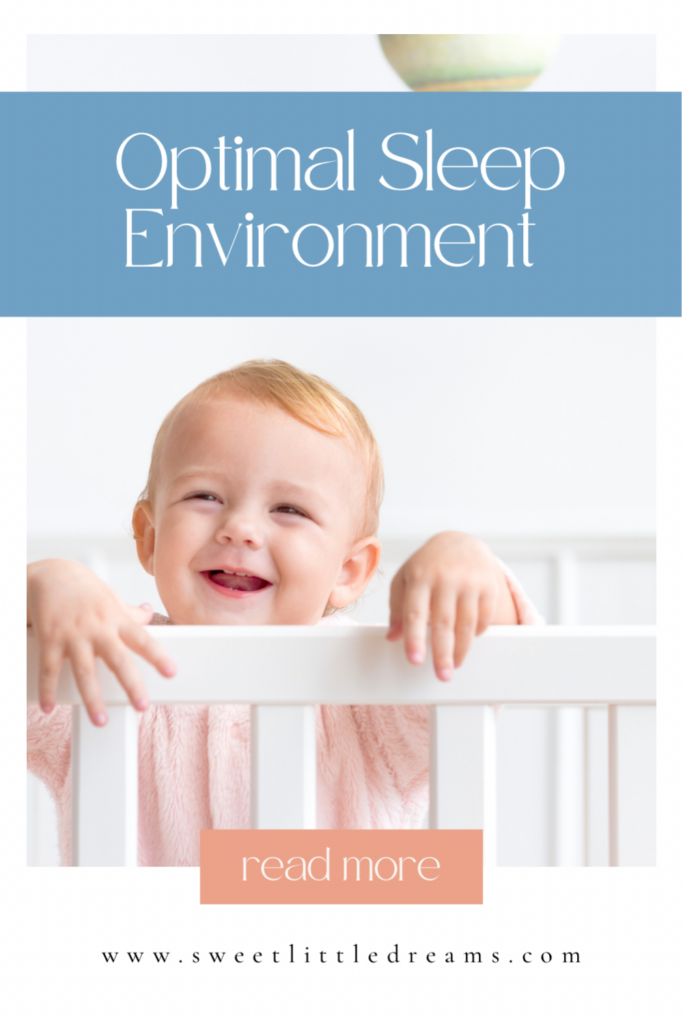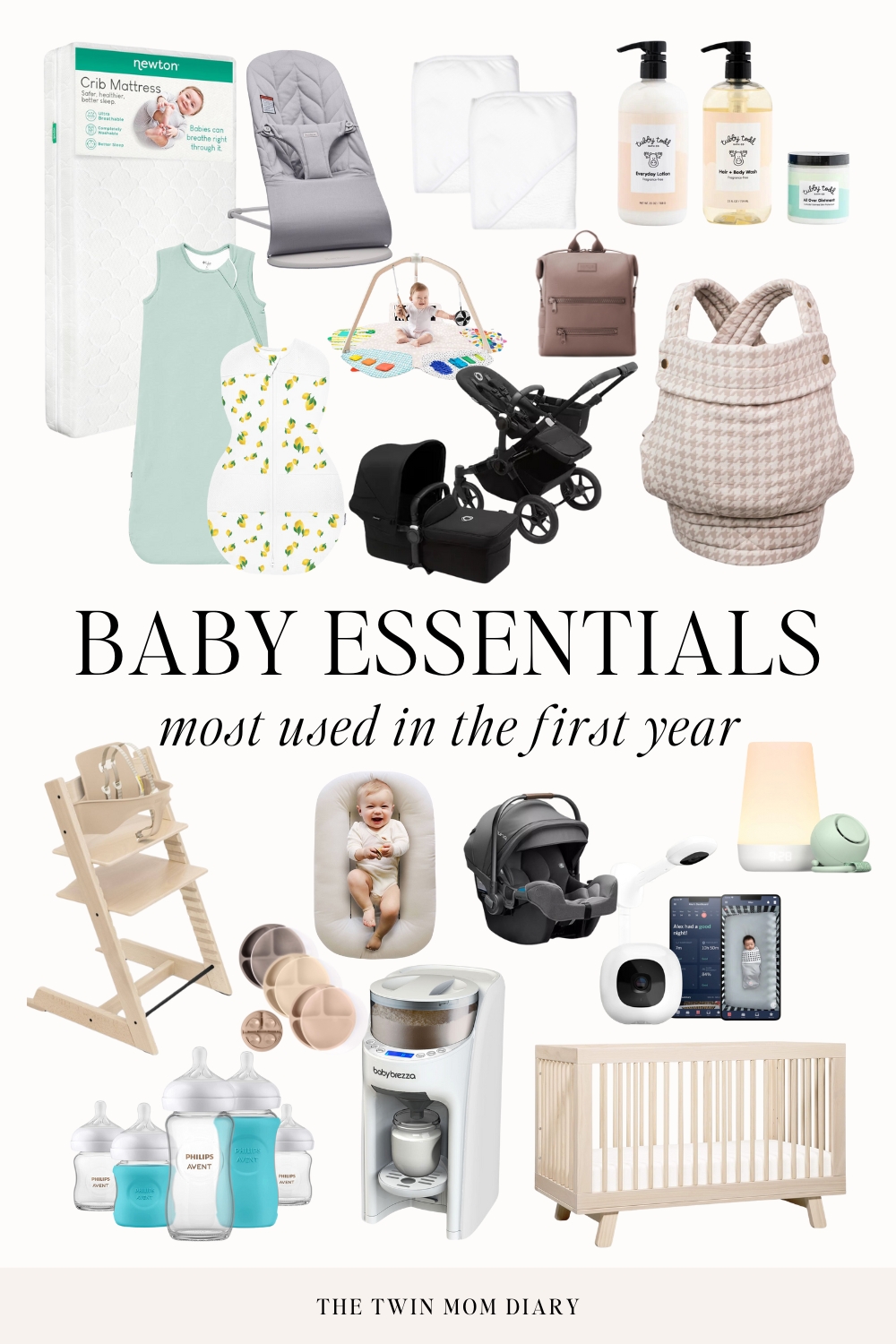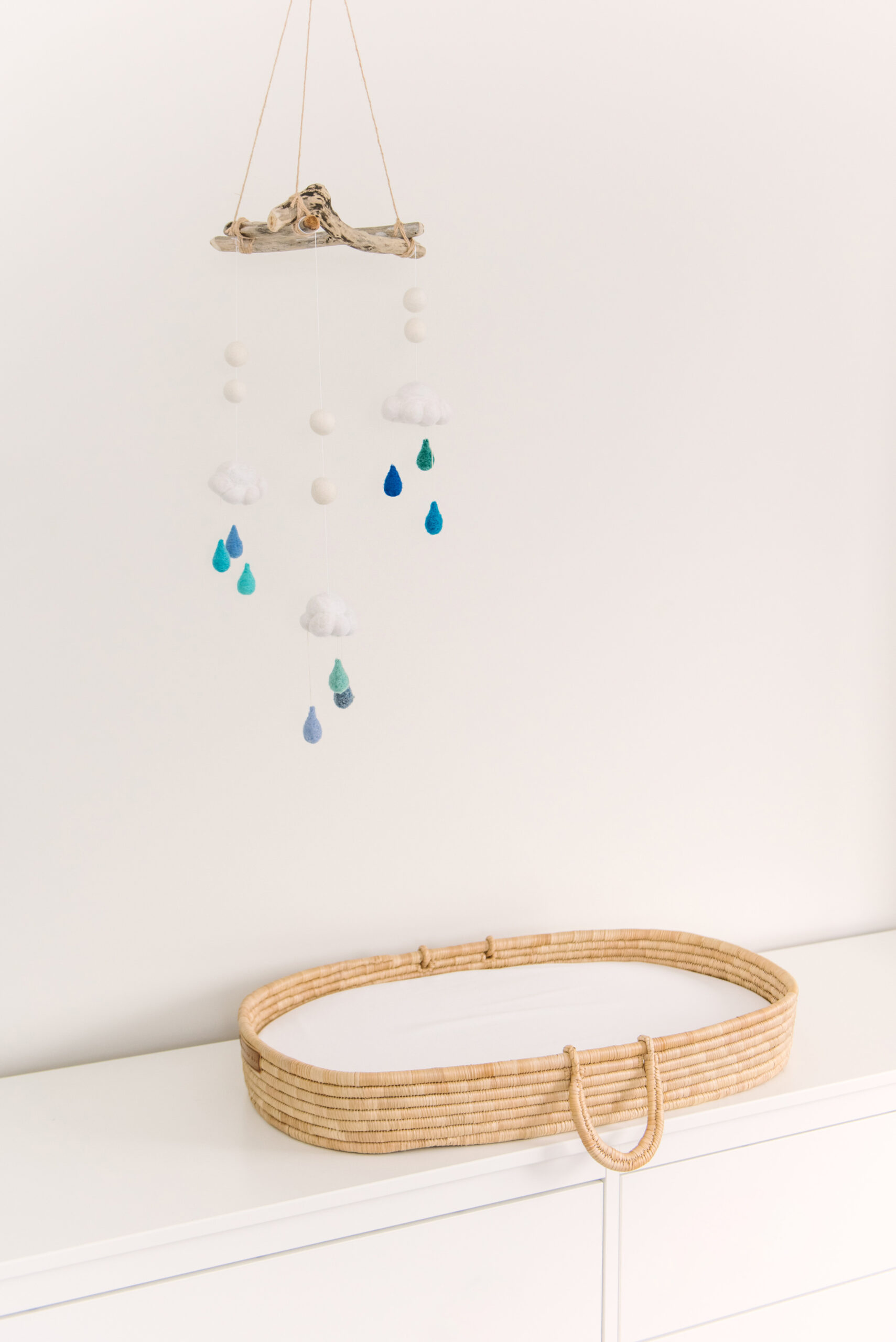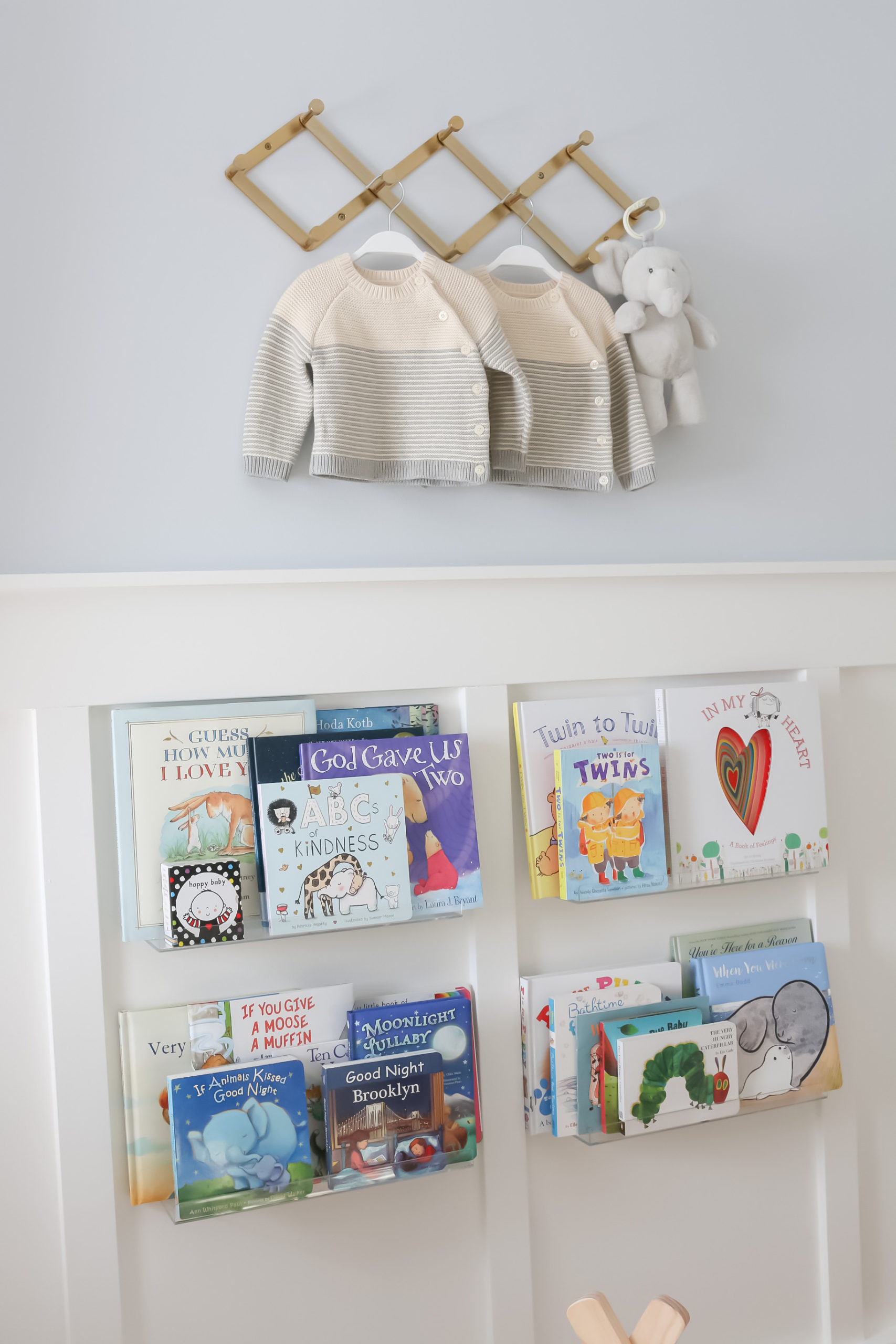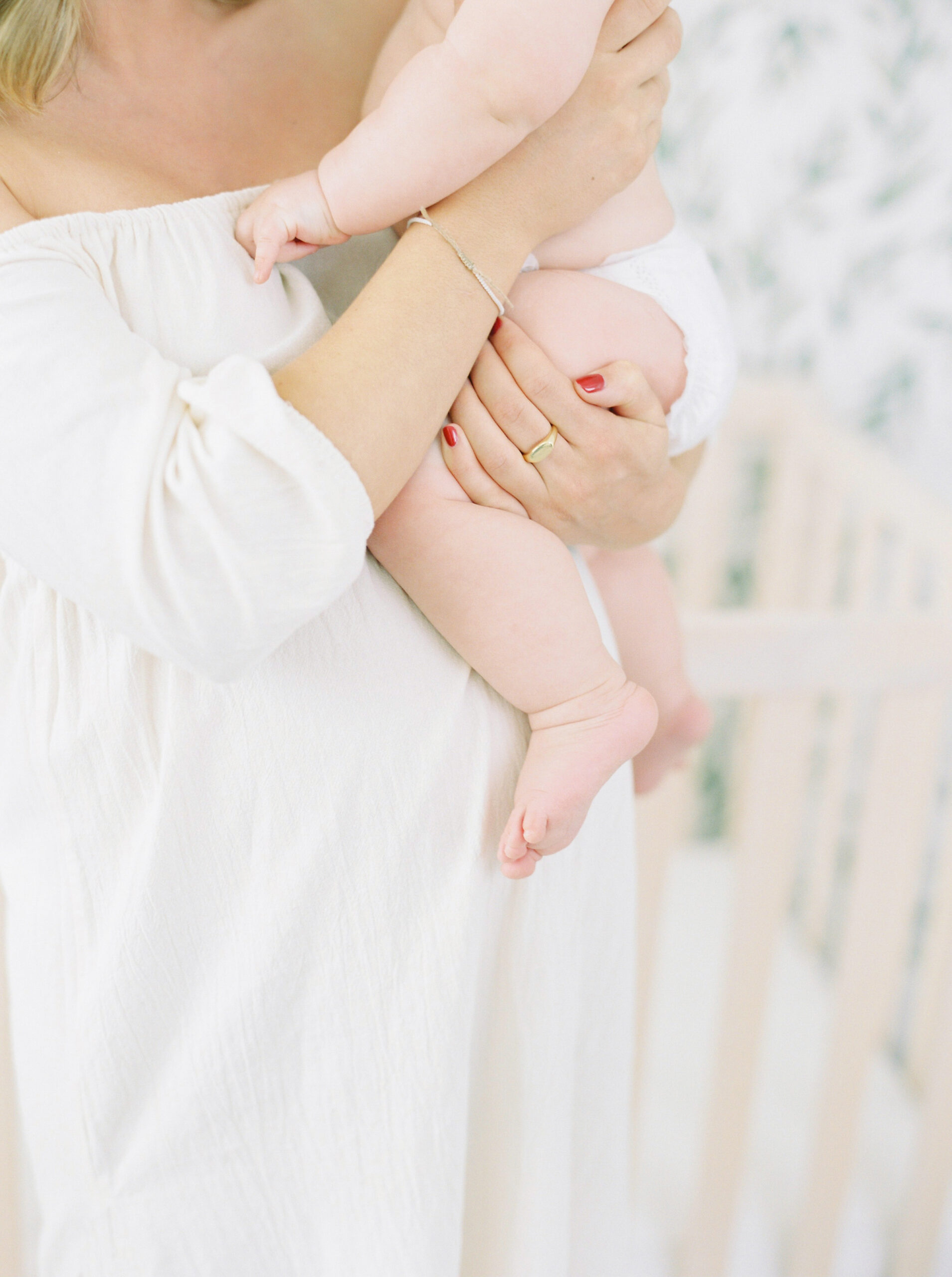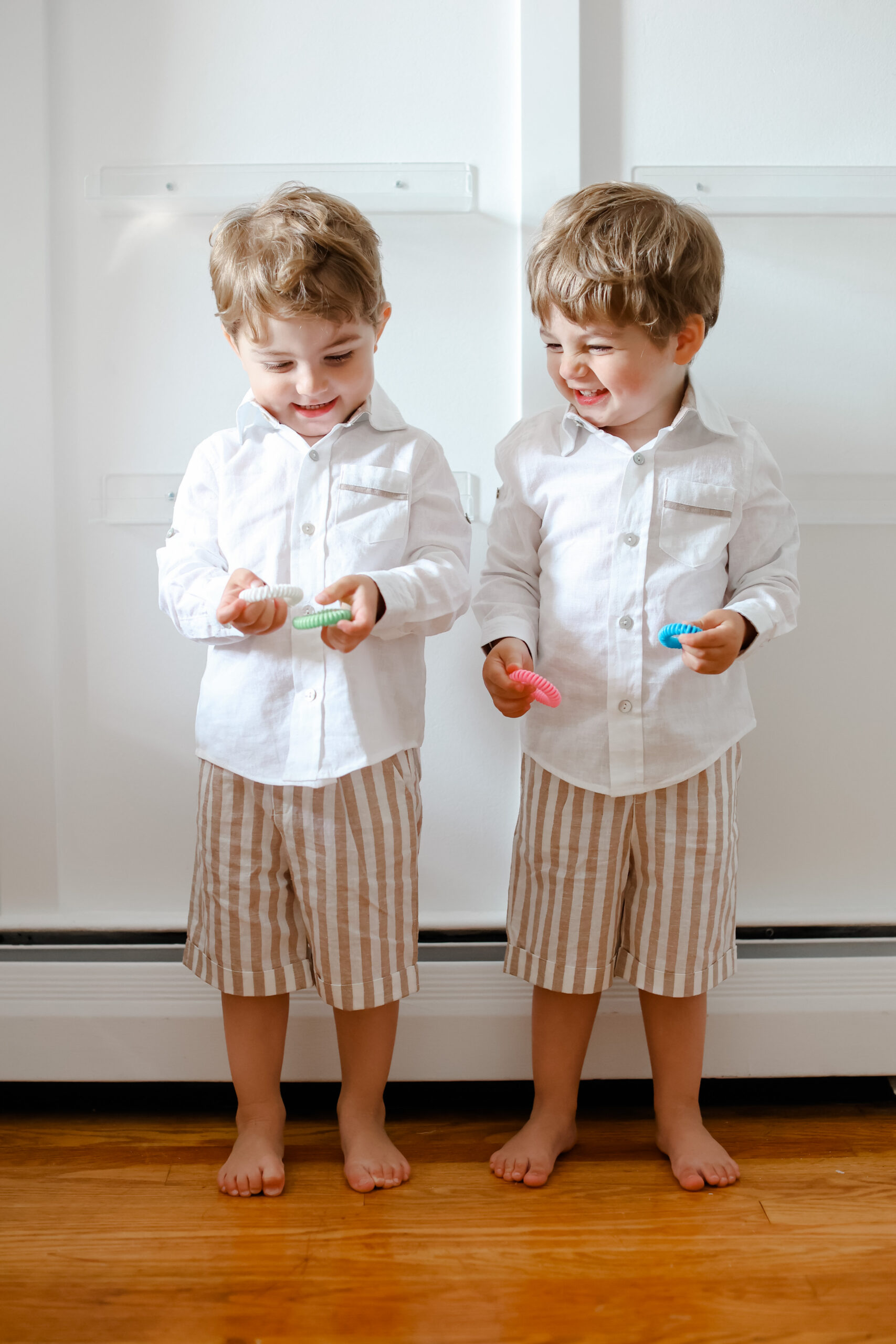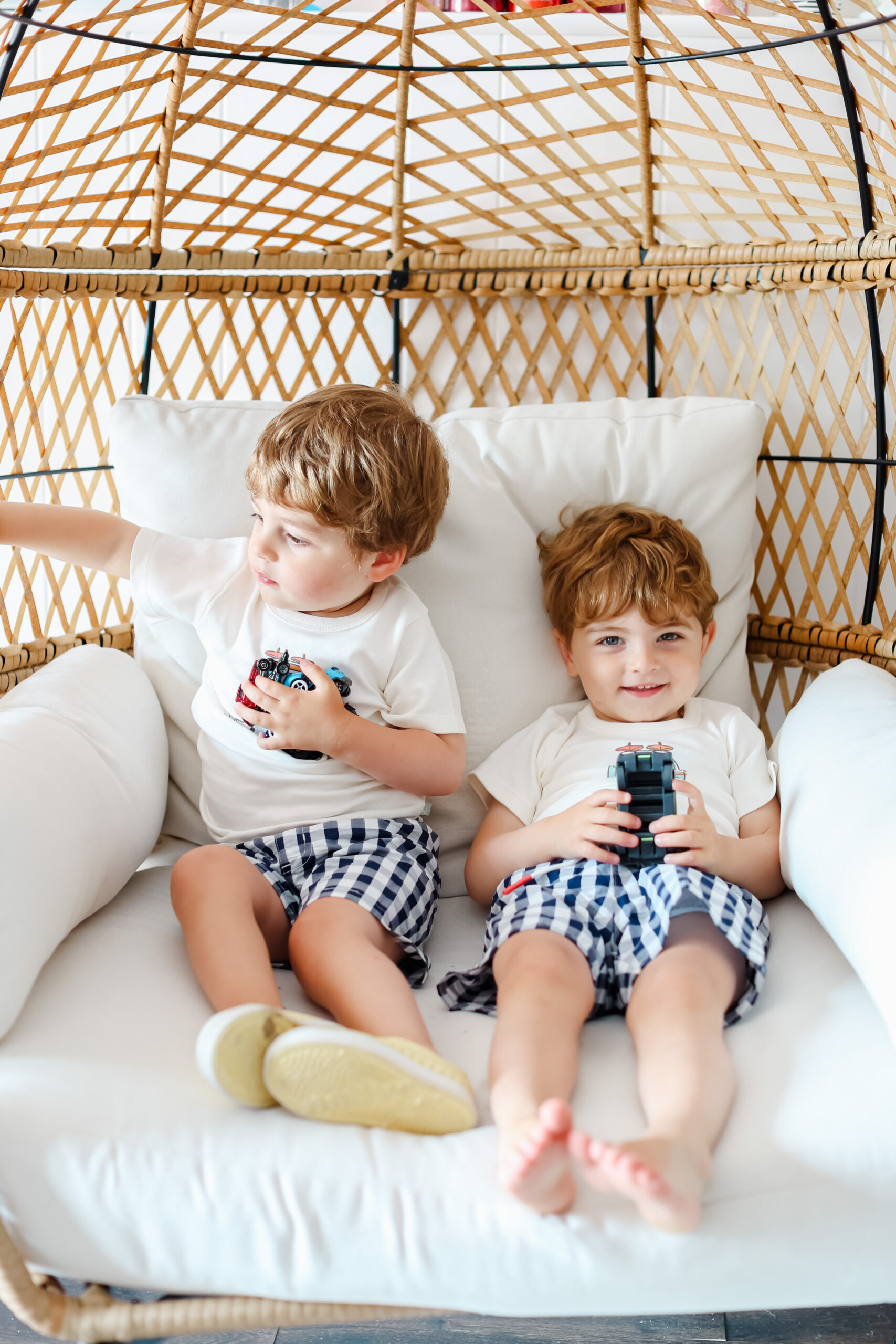Believe it or not but the sleep environment has a lot to do with your baby’s sleep. Creating the optimal environment for your baby will help them take better naps, help with night sleep and can even aid early morning wakings.
In this post we will cover the importance of each of these for the most optimal sleep environment for your baby!
Blackout Darkness
Why is darkness so important?
Darkness is essential to sleep. It sends a critical signal to the body that it is time to sleep. Light exposure at the wrong time will alter the body’s internal clock that helps to regulate the sleep-wake cycles. This can play a big role on the quality and quantity of sleep.
Laying a baby down for a nap in a completely dark room will signal the body to start producing melatonin which is the sleep hormone. Melatonin helps to signal the brain that it is time to sleep.
Melatonin naturally rises during the early evenings as the body prepares for sleep and continues to rise throughout the night, peaking around 3AM. This is why early morning wakings can be one of the issues if the room is not dark enough.
Light exposure in the early morning can often wake a baby as they are in their lightest stages of sleep. It also resets the circadian rhythm. So keeping the room completely dark will help your baby’s sleep.
The best way to know if your baby’s room is dark enough is to perform a hand test. Walk into the room, turn off the lights and let your eyes adjust. Put out your hand in front of you, if you can see your hand, it is not dark enough.
If you didn’t pass the hand test, I highlighly recommend these portable blackout shades. They have little suction cups that make them very easy to put on and make it perfect for traveling. Or simply use heavy duty contractor trash bags and tape them around with painters tape.
White Noise
Why is white noise so important?
White noise can help minimize sudden changes in the environmental noises that can potentially cause your baby to wake up. Helping to block anything that can potentially wake the baby gives them more restful sleep.
Noises can range from things in the home such as pets, appliances, radios, televisions or other people as well as outside sounds like someone mowing the lawn, thunderstorms, rescue sirens and other outside noises. Even if your baby may not fully wake up, they can arouse them slightly, affecting sleep cycles.
When the baby is in the womb, they become used to the sounds our bodies make such as blood flowing through the placenta, our heartbeat and others. A decibel level of a womb is an average ~80 decibels. Babies are used to sound and sound machines can help them with that!
When choosing a sound machine, you want to have one that does not turn off automatically. I personally love Hatch. I have two for my twins and one in our bedroom as well.
It is important to measure the decibels of your white noise machine. You can download the app called ‘Decibel X’, place your phone in the crib and start measuring.
According to The American Academy of Pediatrics the “recommended noise level for infants is 50 dBA, in hospital nurseries and recommends a sound machine to be placed seven feet away from where the child is sleeping”.
According to Dr. Harvey Karp, founder of Happiest Baby on the Block and creator of the Snoo, “Sound doesn’t start boosting sleep until it gets to 60 to 65 dB.”
Fun Fact – This study showed that “(80%) fell asleep within five minutes in response to white noise and white noise may help mothers settle difficult babies.”
Safe Baby Sleep
ABCs of Sleep
Creating a safe sleep for your baby is extremely important. Safe sleep can help prevent Sudden Infant Death Syndrome (SIDS). SIDS is an unexplained death, usually during sleep in seemingly healthy babies less than one years old.
Remember the ABCs
A – Alone
B – Back
C– Crib
The safest sleep spaces for infants are: bassinet, a play yard that is also sleep safe, a crib or a portable crib. It is recommended infants sleep in a bassinet for at least the first 3 months of life. It is also recommended that babies room share NOT bed share with parents for the first 12 months however the timing can be less based on your comfort level.
A tight fitting mattress sheet or a fitted sheet specifically designed for the baby sleep product should be used. American Association of Pediatrics (AAP) requires no objects in or around the crib or bassinet until 12 months old. This includes toys, pillows, blankets or loveys, crib bumpers or stuffed animals. The mattress should be firm, it should not indent when the baby is laying on it.
Your baby should always be placed on their back for all sleep including naps. Once the baby shows first signs of rolling, discontinue swaddling. Once the baby has learned how to roll they may prefer to sleep on their belly. Having daily tummy time can help to achieve safe sleep.
Cool
Recommended Room Temperatures
The recommended room temperature for your baby to sleep in is 68° and 72°F (20° to 22.2°C). Ensuring your baby’s room temperature is within this range is important because it reduces the risk of overheating, which has been linked to SIDS.
The best way to gauge your baby’s comfort level is to see how you are feeling in the room. Many of us sleep more comfortably when it is cooler in our room, same would apply for your baby. Overdressing the baby can cause overheating, unsafety and cause uncomfort and wake them up.
One of the best ways to check your baby’s temperature is by checking their neck or chest to gauge whether they are too hot or too cold.


